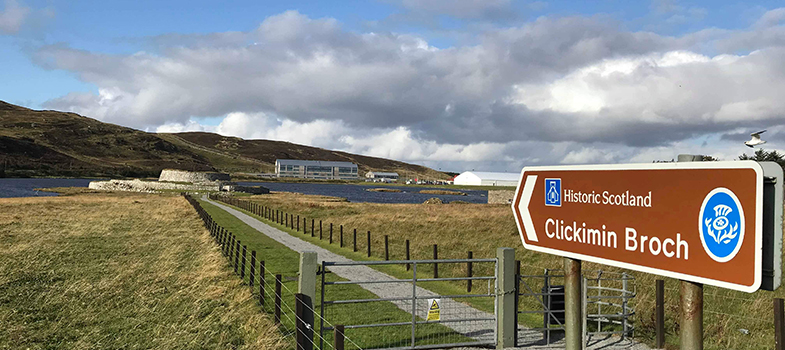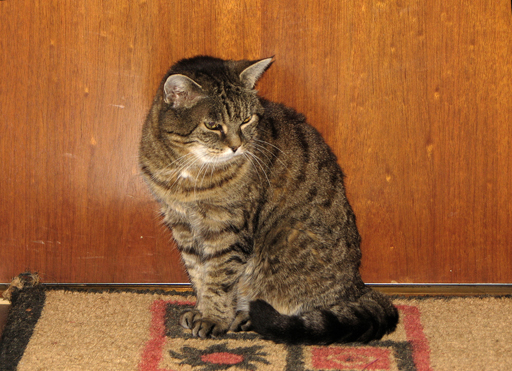17.3 Some widespread features of Scots grammar – continued
V. Determiners
Determiners are words like a, the, this, my, one. They turn cat sat on mat into a well-formed sentence:
- “The cat sat on a mat.”
Here are examples using cat and mat to show how determiners add variety and specificity to sentences:
- Ma cat sat on yer mat.
- Fower cats sat on twa mats.
- Nae cat sat on ony mat.
a) Scots uses these words where Standard English uses them less often or not at all. Work with the examples below and read the transcript, which contains the translation of the sentences.
Examples:
b) The plural of this in Scots is thir. This may be an example of Old Norse influence. The plural of that is thay or thae straight from Old English.
c) If this refers to something close and that refers to something further away, Scots has an extra option, thon or yon, for something or someone even more remote in space or time.
VI. Plural of nouns
Most of the time, Scots makes a noun plural by adding –s or –es (twa dugs, matches) but there are also nouns where Scots has kept an older form such as –en. This only survives in Standard English in oxen. In Scots, we have een (ee + en, eyes) and shin or sheen (shae/shee + -en, shoes). In some dialects, such as Ulster Scots, we have an –er plural in childer where Standard English and many Scots dialects have both an –er and an –en plural, hence children.
VII. Pronouns
Personal pronouns show some regional variation.
a.The most widespread subject forms are: A or I; ye or you; he, she, it or hit in the singular; we; ye or you or youse; and thay or they in the plural.
b.Object forms are: me; ye or you or youse; him, her, it or hit; us or wis; ye or you or youse; and thaim or them.
c.Possessive forms are: my or ma; your or yer; his, her, its or hits; oor or wir; your or yer; thair or their.
*Note that ye and wir are less likely to be used in a stressed or emphatic context.
d.Reflexive pronouns: Scots forms reflexive pronouns in a regular fashion by using the possessive pronoun + sel throughout: for example masel ‘myself’, yersel yourself’, hissel ‘himself’, and oorsels or wirsels ‘ourselves’.
e.Relative pronouns: The interrogative or relative pronouns are wha (who) and wham (whom) as in Scots wham Bruce has aft-times led. Wham in Scots, like whom in English is now rarely used by young speakers.
Activity 6
In this activity you will apply what you have learned about determiners, plural of nouns and pronouns in Scots. You are going to work again with two texts you have come across in the course before: Christina Costie’s poem ‘Speech’ and Margaret Laidlaw’s famous quote about her songs being spoiled by being printed in the Minstrelsy by Scott.
Part 1
Christina Costie ‘Speech’ – Find all examples of plurals of nouns, pronouns and determiners in this extract.
Discussion
* Note the spelling sheu for ‘she’, which reflects the Orkadian dialect of Scots and is not a very commonly used spelling for this pronoun.
Part 2
Margaret Laidlaw’s complaint to Walter Scott - find all examples of pronouns and plurals of nouns in this quote.
17.2 Some widespread features of Scots grammar

